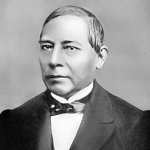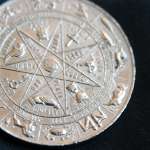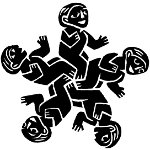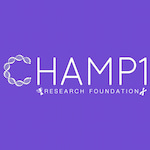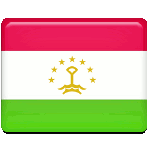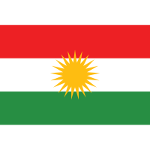Holidays Calendar for March 20, 2023
Tunisia celebrates its Independence Day on March 20 every year. This is the country’s national holiday that commemorates the anniversary of Tunisia’s independence from France.
March 20 is Oil Nationalization Day in Iran. The era of nationalized oil began in 1951, when the National Iranian Oil Company took control over petroleum industry in the country.
On the third or fourth Monday in March, the citizens of Christmas Island observe Labor Day. It is an annual public holiday that celebrates the achievements of workers.
On the third Monday in March, the Mexicans celebrate Benito Juárez Day. It is an annual public holiday dedicated to a Mexican politician who served as President of Mexico for five terms.
Vernal equinox is generally associated with the arrival of spring. In some cultures, there are festivals related to this astronomical event, for example, Nowruz. In Japan, Vernal Equinox Day has been an official public holiday since 1948.
In some English ceremonial counties, county day coincides with the observance of the their patron saint’s feast day. For example, Durham Day is celebrated on March 20 because it is Saint Cuthbert’s Day.
International Day Without Meat is annually celebrated on March 20. This holiday was observed for the first time in 1985 in the USA as Great American Meatout.
World Oral Health Day is an annual awareness day observed on March 20. Its main goal is to raise global awareness of the importance of oral health and oral hygiene.
International Astrology Day is observed annually on the day of the vernal equinox in the Northern Hemisphere. It can be celebrated by astrologers and astrology enthusiasts between March 19 and 22, although the most frequent date is March 20.
Flour is a staple ingredient in most cuisines around the globe because it is used to make bread. To highlight the importance of flour, the FlourWorld Museum in Wittenburg, Germany established World Flour Day that is celebrated annually on March 20.
Did you know that there are more than 7,500 species of frogs, and more than one third of them are considered to be threatened with extinction? World Frog Day is celebrated every March 20 to raise awareness of the conservation status of these amazing amphibians and encourage people all over the world to take action to preserve their habitat.
Earth Day is an annual international event, that is held to demonstrate support for environmental protection. 192 countries annually celebrate this event.
World Storytelling Day is a unique celebration, that is observed around the world on the spring equinox in the northern hemisphere and on the fall equinox in the southern hemisphere.
World Behavior Analysis Day is celebrated annually on March 20. It was created to raise awareness of one of the major schools of thought in modern psychology and commemorate the birthday of its founder, B. F. Skinner.
The World Day of Theatre for Children and Young People is celebrated annually on March 20. It was established by the International Association of Theatre for Children and Young People (ASSITEJ) to encourage adults to take children in their lives to theatre and ensure they have access to the arts.
CHAMP1 Awareness Day is held annually on March 20. It was created to raise awareness of an ultra-rare neurodevelopmental disorder caused by a mutation in the CHAMP1 gene.
Two interconnected holidays, Culture Day and Creative Intelligentsia Day, are observed in Tajikistan on March 20. They were created to celebrate the rich culture of Tajikistan and the creative force behind it.
World Sparrow Day is one of the days, designated to raise awareness of birds, especially of the house sparrow and the ones common to urban environment. This holiday is observed annually on March 20.
 Cultural Observances →
Albania,
Armenia,
Andorra,
Belgium,
Benin,
Bulgaria,
Burkina Faso,
Burundi,
Vanuatu,
Vietnam,
Gabon,
Haiti,
Ghana,
Guinea,
Guinea-Bissau,
Greece,
Democratic Republic of the Congo,
Djibouti,
Dominica,
Egypt,
Cape Verde,
Cambodia,
Cameroon,
Canada,
Cyprus,
Comoros,
Ivory Coast, ...
Cultural Observances →
Albania,
Armenia,
Andorra,
Belgium,
Benin,
Bulgaria,
Burkina Faso,
Burundi,
Vanuatu,
Vietnam,
Gabon,
Haiti,
Ghana,
Guinea,
Guinea-Bissau,
Greece,
Democratic Republic of the Congo,
Djibouti,
Dominica,
Egypt,
Cape Verde,
Cambodia,
Cameroon,
Canada,
Cyprus,
Comoros,
Ivory Coast, ...
International Francophonie Day
Every year March 20 is International Francophonie Day, that is celebrated by 77 countries of the world.
In 2010, UNESCO (the UN Educational, Scientific and Cultural Organization) established United National Language Days. Each of these days is dedicated to one of the UN's official working languages. French Language Day is celebrated on March 20.
In the Kurdistan Region of Iraq, there are several observances dedicated to the 1991 uprisings in Iraq which resulted in the de facto autonomy of Iraqi Kurdistan. The anniversary of the rebellion is celebrated on March 5, and March 20 is observed as Kirkuk Liberation Day.
Ravioli is one of the most popular dishes among pasta lovers. If you're one of them, you should definitely celebrate National Ravioli Day on March 20.
Extraterrestrial Abduction Day, also known as Alien Abduction Day, is an informal holiday observed on March 20. It is mainly celebrated by people who wish to be abducted by an alien life form.
If you’re a fan of decadent and delicate cookies made from almond meringue, you should observe celebrate National Macaron Day on March 20. This amazing holiday was created to celebrate macarons and give back to communities by donating a percentage of macaron sales to various charities.
Minion Day is a fun holiday that is unofficially observed in Japan on March 20. It celebrates fictional creatures that appear in the Despicable Me media franchise.
Ostara is one of the pagan festivals, that is held up to date. It's also another name for celebration of the spring equinox.
International Day of Happiness was established under initiative of the United Nations. This holiday is annually celebrated on March 20 since 2012.
National Native HIV/AIDS Awareness Day is an annual observance in the United States held on March 20. It was instituted over a decade ago by HIV.gov, a web portal for all federal domestic HIV and AIDS resources and information.
Festivals for March 20, 2023
- Feis Ceoil in Dublin, Ireland
- Carnival of Stavelot in Stavelot, Belgium
- National Cherry Blossom Festival in Washington, USA
- Fumetto in Lucerne, Switzerland
- Barranquilla Carnival in Barranquilla, Colombia
- International Cherry Blossom Festival in Macon, USA
- Sofia International Film Festival in Sofia, Bulgaria
- Vilnius International Film Festival “Kino Pavasaris” in Vilnius, Lithuania
- CPH:DOX Film Festival in Copenhagen, Denmark
- Chartres en lumières (Chartres in Lights) in Chartres, France
- Starkbierzeit (Strong Beer Festival) in Munich, Germany
- Trans-Siberian Art Festival in Novosibirsk, Russia
- United Solo Theatre Festival in New York, USA
- Shaw Festival in Niagara-on-the-Lake, Canada
- Bay Area Renaissance Festival in Dade City, USA
This Day in History
- 2020 Died: Kenny Rogers, American singer and songwriter who was inducted into the Country Music Hall of Fame in 2013. He sold more than 100 million records worldwide during his lifetime.
- 2017 Died: David Rockefeller, American economist and investment banker who served as chairman and chief executive of Chase Manhattan Corporation.
- 2013 Died: James Herbert, English author, who became famous for his horror novels The Rats, The Fog, The Spear, Shrine, '48, The Secret of Crickley Hall.
- 2012 A wave of terrorist attacks came across 10 cites in Iraq; at least 25 people were killed and more than 250 injured.
- 1999 The first Legoland outside of Europe was opened in Carlsbad, California.
- 1995 Japanese cult Aum Shinrikyo (currently known as Aleph) carried out a sarin gas attack on the Tokyo subway, resulting in the deaths of 13 people and injuries of 1,300.
- 1989 Born: Xavier Dolan, Canadian filmmaker and actor. His best known films include I Killed My Mother, Mommy, It's Only the End of the World, The Death and Life of John F. Donovan.
- 1987 AZT (zidovudine or azidothymidine) was approved as an anti-AIDS drug by the U.S. Food and Drug Administration.
- 1986 Born: Ruby Rose, Australian model, actress, disk jockey, and television presenter. Her notable television credits include Orange Is the New Black and Batwoman.
- 1979 Born: Freema Agyeman, English actress best known for her roles as Martha Jones in Doctor Who and Torchwood, Amanita Caplan in Sense8, and Dr. Helen Sharpe in New Amsterdam.
- 1974 Ian Ball attempted to kidnap Her Royal Highness Princess Anne and her husband Captain Mark Phillips in The Mall, outside Buckingham Palace, London. His attempt failed.
- 1972 A Provisional IRA car bomb killed 7 people and injured 148 in Belfast, Northern Ireland.
- 1971 Born: Murray Bartlett, Australian actor. He became internationally known for starring as a luxury resort manager in the first season of the HBO dark comedy series The White Lotus.
- 1963 Born: David Thewlis, English actor and filmmaker. Known as a character actor, he has appeared in a wide variety of genres in both film and television, including the Harry Potter film series.
- 1962 Born: Stephen Sommers, American director, producer, and screenwriter, best known for producing The Mummy and The Mummy Returns. He also directed The Jungle Book, Van Helsing, and G.I. Joe: The Rise of Cobra.
- 1957 Born: Chris Wedge, American animator, producer, screenwriter, and voice actor, best known for the films Ice Age, Robots, Epic, and Monster Trucks.
- 1950 Born: William Hurt, American actor of stage and screen whose many accolades include an Academy Award, BAFTA Award, and Cannes Film Festival Award for Best Actor.
- 1940 Died: Alfred Ploetz, German physician, biologist, and eugenicist, known for coining the term racial hygiene (state policy were certain groups of individuals are allowed to procreate and others not) and promoting the concept in Germany.
- 1933 The first Nazi concentration camp in Dachau was created by order of Reichsführer-SS Heinrich Himmler. Theodor Eicke was appointed as the camp commandant.
- 1916 Albert Einstein published his general theory of relativity. His theory currently describes the gravitation in modern physics.
- 1911 Born: Alfonso García Robles, Mexican diplomat, Nobel Peace Prize laureate for setting up a nuclear-free zone in Latin America and the Caribbean.
- 1878 Died: Julius von Mayer, German physician and physicist, the founder of thermodynamics. He is best known for enunciating one of the original statements of the conservation of energy.
- 1874 Died: Hans Christian Lumbye, Danish composer of waltzes, mazurkas, polkas, and galops. He is known for light compositions, many of which evoke non-musical sources.
- 1861 The city of Mendoza, Argentina was totally destroyed by an earthquake. At least 5,000 people were killed.
- 1836 Born: Edward Poynter, English painter, best known for his large historical paintings Israel in Egypt, St. George for England, and King Solomon.
- 1835 Died: Louis Léopold Robert, Swiss painter, whose masterpieces are preserved in numerous museums, including the Louvre, the Berlin National Gallery, etc.
- 1828 Born: Henrik Ibsen, Norwegian poet, playwright, and director. Ibsen is often referred to as the father of realism and one of the founders of Modernism in theater. His play A Doll's House was the world's most performed play in 2006.
- 1770 Born: Friedrich Hölderlin, German lyric poet, commonly associated with the Romanticism movement. He was an important figure in the development of German Idealism.
- 1741 Born: Jean-Antoine Houdon, French sculptor, famous for his portrait busts and statues of great philosophers, inventors and political figures.
- 1735 Born: Torbern Bergman, Swedish chemist, mineralogist, noted for his Dissertation on Elective Attractions. His work contains the largest ever published tables of chemical affinity.
- 1726 Died: Isaac Newton, English physicist, mathematician, astronomer, and philosopher. Newton is widely recognized as one of the foremost influential scientists of all time and as a key figure in the scientific revolution.
- 1619 Died: Matthias, Holy Roman Emperor, King of Hungary and Croatia, King of Bohemia. His policy was marked by trying to bring about a compromise between Catholic and Protestant states within the Holy Roman Empire.
- 1616 Sir Walter Raleigh, English aristocrat, writer, poet, soldier, spy and explorer, was freed after 13 years of imprisonment in the Tower of London. Raleigh is well-known today for popularizing tobacco in England.
- 1568 Died: Albert, Duke of Prussia. Albert was the first monarch in Europe to establish Protestantism as the official religion of his lands.
- 1502 Born: Pierino Belli, Italian soldier and jurist, known as the father of modern international law.
- 1413 Died: Henry IV of England, King of England and Lord of Ireland from 1399 to 1413. He was the first English ruler since the Norman Conquest whose mother tongue was English rather than French.
- 1239 Died: Hermann von Salza, Roman knight, the fourth Grand Master of the Teutonic Knights from 1210 to 1239. He was a skilled diplomat and oversaw the expansion of his military order into Prussia.



